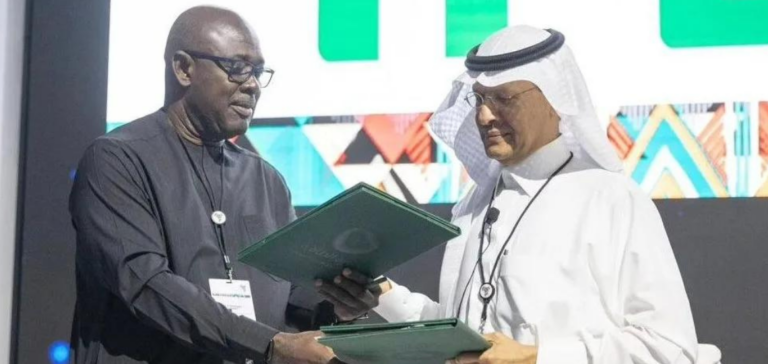Against a complex international backdrop, Nigerian President Bola Ahmed Tinubu recently emphasized strengthening economic relations with Saudi Arabia. This initiative, marked by an Africa-Saudi Arabia summit meeting, is a strategic step in Nigeria’s economic policy. President Tinubu’s objective is clear: to attract Saudi investors by guaranteeing the security of their investments in the country.
Economic Ambitions and Reforms in Nigeria
This move is part of a broader economic reform plan launched by Nigeria in May, aimed at revitalizing its economy and attracting more foreign investment. These efforts seem necessary, given the significant drop in foreign investment in the country, from $2.2 billion in 2014 to $470 million in 2022.
Energy Cooperation: Memorandum of Understanding and Outlook
The signing of a cooperation agreement between Nigeria and Saudi Arabia during this visit marks a potential turning point in bilateral relations. This agreement could pave the way for future economic collaboration, particularly in the energy sector. Indeed, Nigerian Petroleum Minister Heineken Lokpobiri announced the signing of a memorandum of understanding aimed at strengthening partnership and cooperation in the oil and gas sector, promising technology sharing and an influx of investment.
Common Challenges and Fluctuating Oil Prices
Nevertheless, it remains uncertain whether these projects will materialize. Economic relations between Saudi Arabia and Nigeria, despite diplomatic ties and shared membership of the Organization of the Petroleum Exporting Countries (OPEC) and the Organization of Islamic Cooperation (OIC), remain limited. Saudi Arabia’s economic presence in Africa, though growing, remains modest, even after the creation of a Nigeria-Saudi Arabia Chamber of Commerce a year ago.
Benjamin Augé, a researcher at the French Institute of International Relations (Ifri), points out that energy interactions between the two countries have mainly been limited to discussions at OPEC summits. He expressed reservations about Saudi investment in Nigeria’s oil sector. This cautious approach reflects the complexity of international economic relations and the challenges facing both countries, particularly in the face of falling oil prices.
The meeting between Nigeria and Saudi Arabia symbolizes the hope of strengthening economic relations, particularly in the energy sector. However, the future of this cooperation will depend on the implementation of the agreements signed and the ability of both countries to overcome the current economic challenges.






















